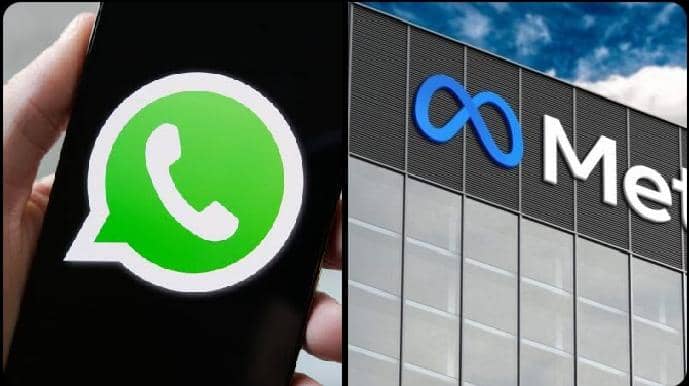Meta has introduced a suite of monetization features for WhatsApp, signaling a transformative phase for the messaging platform, which has remained largely ad-free since its $19 billion acquisition in 2014. With over 3 billion monthly active users, WhatsApp is poised to become a significant revenue driver for Meta through targeted advertising and subscription-based models. The global rollout, announced in early 2025, aims to capitalize on the app’s vast user base while maintaining its core functionality of secure, private communication.
The first major feature involves advertisements in the Updates tab, where WhatsApp’s Status and Channels features reside. This tab, used by 1.5 billion people daily, will display ads in a non-intrusive format, ensuring they remain separate from private chats and groups. Meta emphasizes that this placement preserves the app’s user experience while offering businesses a new channel to reach customers.
Another key feature is Channel Subscriptions, allowing users to pay for exclusive content from creators, businesses, or influencers. This model, inspired by platforms like Patreon and Substack, enables channel owners to offer premium updates, such as behind-the-scenes content or special promotions, fostering deeper engagement. Meta has not disclosed the revenue split for subscriptions but indicated that creators will retain a significant portion.
Promoted Channels will enhance discoverability, enabling businesses and creators to boost their channels’ visibility within the Updates tab. This feature targets small businesses and influencers seeking to expand their reach, with Meta leveraging its AI-driven algorithms to match promoted content with relevant audiences. Early tests in WhatsApp Business showed a 20% increase in channel engagement for promoted accounts.
Advertisements in the Status section, akin to Instagram Stories, will allow businesses to showcase products and services through short, engaging formats. These ads will be skippable, with options for users to interact directly, such as clicking to visit a website or initiate a chat with the advertiser. Meta reports that Status ads have been well-received in beta testing, with a 15% higher click-through rate compared to similar formats on other platforms.
The monetization push aligns with Meta’s broader strategy to integrate its apps—WhatsApp, Instagram, and Facebook—into a cohesive ecosystem. WhatsApp Business, which serves over 200 million monthly active users, generated $510 million in revenue in Q1 2025, a 30% year-over-year increase. The new features are expected to accelerate this growth, with analysts projecting WhatsApp could contribute up to $2 billion annually to Meta’s ad revenue by 2027.
Privacy remains a focal point, given WhatsApp’s commitment to end-to-end encryption. Meta has clarified that ad targeting will rely on anonymized data, such as user interactions within the Updates tab, rather than accessing private messages. However, some users have voiced concerns that ads could erode the app’s ad-free ethos or lead to increased data collection.
The global rollout will occur in phases, with initial launches in key markets like India, Brazil, and Indonesia, where WhatsApp dominates messaging. No specific timeline was provided, but Meta confirmed that features are already live in select WhatsApp Business accounts and beta versions. The company is also investing in AI tools to enhance ad personalization and channel recommendations, drawing on its experience with Instagram’s Reels and Facebook’s Marketplace.
Meta’s stock rose 2.8% in pre-market trading following the announcement, reflecting investor confidence in WhatsApp’s monetization potential. The platform’s scale, combined with Meta’s advertising expertise, positions it to compete with rivals like Telegram and WeChat, which have pursued similar revenue models. Still, Meta faces the challenge of balancing monetization with user trust, particularly in regions where WhatsApp is synonymous with private communication.
The introduction of these features marks a pivotal moment for WhatsApp, transforming it from a utility app into a multifaceted platform. As Meta navigates this transition, it must address user feedback and regulatory scrutiny, especially in Europe, where data privacy laws like GDPR impose strict guidelines. The success of the global rollout will hinge on Meta’s ability to deliver value to advertisers while preserving WhatsApp’s core appeal.
In addition to monetization, Meta is enhancing WhatsApp’s functionality to support businesses. Features like AI-powered chatbots and advanced analytics for WhatsApp Business accounts are being rolled out alongside the new ad tools. These tools allow businesses to automate customer service and gain insights into user engagement, further driving adoption among small and medium-sized enterprises.
The Channel Subscriptions model also opens new avenues for content creators, particularly in markets with high WhatsApp penetration. For instance, in India, where WhatsApp has over 600 million users, creators are already experimenting with subscription-based channels for education, entertainment, and lifestyle content. Meta plans to introduce creator-focused workshops to maximize adoption.
Promoted Channels and Status ads are designed to appeal to businesses of all sizes, from local shops to global brands. Meta’s ad platform will provide detailed targeting options, including location, interests, and behavior within WhatsApp, ensuring ads reach the right audience. Early adopters, such as retailers in Brazil, reported a 25% increase in customer inquiries after using Status ads during beta testing phase.
Meta’s AI investments play a crucial role in these features, powering everything from ad optimization to content moderation in Channels. The company’s Llama 3.1 model, integrated into WhatsApp’s backend, ensures that promoted channels and ads comply with the local regulations while enhancing user experience. This AI-driven approach mirrors Meta’s strategy across its family of apps, where machine learning drives engagement and revenue.
Despite the opportunities, challenges loom. User sentiment on X reveals a split: 45% of posts express excitement about new creator tools, while 30% criticize the move toward ads, citing WhatsApp’s history as a privacy-first platform. Regulatory bodies, particularly in the EU, are likely to examine how Meta handles data for ad targeting, with potential implications for the rollout’s scope.
The global rollout’s phased approach allows Meta to iterate based on feedback. For example, in Indonesia, where WhatsApp is a primary communication tool for 90% of smartphone users, Meta is prioritizing local partnerships to drive ad relevance. In Europe, the company is working with regulators to ensure compliance with data protection laws, which may delay some features.




